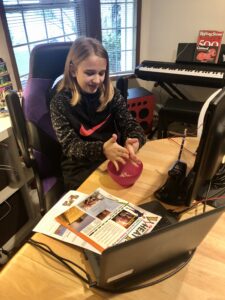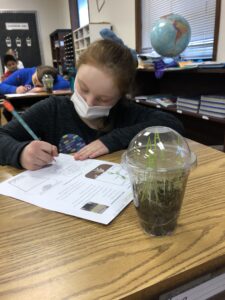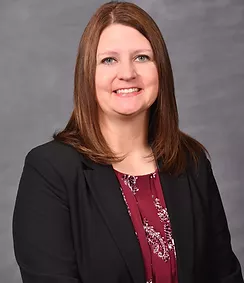By Kara Kaelber
Wheat Week, a 4th and 5th grade hands-on science program using wheat as the teaching tool, is entering its 15th year in Washington state. Who would have thought the COVID-19 pandemic would have allowed the program to expand? In March of 2020, the in-person program was brought to a halt in classrooms. When it became clear that the 2020/21 school year was not going to begin in-person, the Wheat Week team took it upon themselves to create a “virtual” option. DIY (do-it-your-self) Online Wheat Week was created. Hands-on “kits” and short content videos were created so students were able to participate in Wheat Week from home or school. With the hands-on kits, students were still able to participate in the best parts of Wheat Week: growing wheat in a terrarium and threshing their own wheat heads!

COVID-19 provided silver linings all around, and the new DIY Online Wheat Week program was no exception. Previously, Wheat Week needed an educator in the area to offer the program to classrooms. Now, with DIY Online Wheat Week, staff is able to ship the kits to schools anywhere in the state. DIY Online Wheat Week by no means has replaced the original, in-person Wheat Week, but during times of uncertainty, for homeschool or virtual learners and for those schools outside coverage area, DIY Online Wheat Week will remain a great option for many students across Washington.
Teachers really enjoyed the DIY Online Wheat Week program because of the flexibility it offered. In uncertain times, they knew they could still count on Wheat Week being a regular part of their yearly curriculum. Last school year, 26,700 DIY Online Wheat Week kits were delivered to teachers across Washington. Currently, many school districts are opening back up for in-person Wheat Week. Wheat Week educators are filling up their calendars providing both the DIY Online Wheat Week program and our traditional in-person Wheat Week program simultaneously to all public and private elementary schools, homeschools and online schools in Washington state.

The Washington Grain Commission (WGC) mission to advance and promote Washington small grains is accomplished in part by responsible allocation of assessment funds in educational programs. Wheat Week is brought to Washington classrooms by the Franklin Conservation District and funded through the WGC to provide school-based curriculum with hands-on lessons about the basic principles of water and soil interaction and environmental issues pertaining to the wheat industry; problem solving skills and understanding of best management practices related to wheat; and the importance of dams and wheat transportation. The program also provides teacher workshops and resource manuals, teacher guides, self-training materials and student workbooks, all aligned with required Washington State Sciences Standards.
This article originally appeared in the December 2021 issue of Wheat Life Magazine.

Kara Kaelber
Kara Kaelber is the Franklin Conservation District's education director and has been with the district since 2005. She coordinates the Salmon in the Classroom, Drain Rangers & Jr. Drain Rangers as well as the Wheat Week Programs around Washington State. During the summer, Kara roams around the state putting on teacher workshops in Project WET, Project WILD and Project Learning Tree. Kara is a certified teacher and Program Administrator. She holds a Bachelor of Arts in Humanities from Washington State University and a Master of Arts in Educational Leadership from Heritage University. Kara is also a member of AgForestry Class 37 and a recipient of the Carol Mercer Inspiration Award. Read more about Wheat Week.
